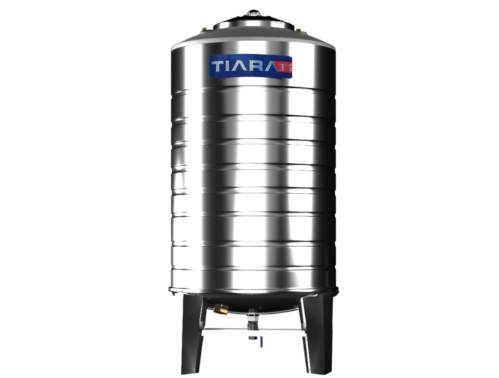
As the world grapples with increasing water scarcity and environmental challenges, the need for sustainable water storage solutions has never been more pressing. An eco-friendly and cost-effective water storage system not only conserves water but also reduces environmental impact and saves money over time. This practical guide explores actionable strategies to design and implement such systems effectively
How to Ensure Water Storage Systems Are Eco-Friendly and Cost-Effective?
1. Opt for Sustainable Materials
The foundation of an eco-friendly water storage system lies in choosing the right materials. Durable, recyclable, and non-toxic materials ensure minimal environmental impact and longevity.
Stainless Steel Tanks: These are highly durable and recyclable, making them a sustainable option despite their higher upfront cost.
High-Density Polyethylene (HDPE): Lightweight and long-lasting, HDPE tanks are ideal for cost-effective and eco-friendly storage.
Concrete Tanks: While not as lightweight, concrete tanks are robust and suitable for large-scale storage solutions.
2. Integrate Rainwater Harvesting
Rainwater harvesting is an essential feature of any sustainable water storage system. By collecting and storing rainwater, households and communities can reduce their dependence on municipal water supplies.
Installation: Simple gutter systems connected to storage tanks can collect rainwater from rooftops.
Usage: Stored rainwater can be used for non-potable purposes like irrigation, cleaning, and flushing, reducing water wastage.
3. Incorporate Energy-Efficient Technology
Energy-efficient systems can lower operating costs while reducing the carbon footprint of water storage systems.
Solar-Powered Pumps: Use renewable energy to transfer and distribute water, eliminating dependence on grid electricity.
IoT Integration: Install sensors to monitor water levels and usage, ensuring efficient consumption and timely refilling.
4. Prevent Water Loss
A significant challenge in water storage is the loss of water through leaks or evaporation. Adopting preventive measures can save both water and money.
Leak-Proof Tanks: Invest in high-quality tanks with durable seals to prevent leakage.
Shaded Storage Areas: Position tanks in shaded areas or use reflective covers to minimize evaporation.
5. Design Modular Systems
Modular water storage systems offer scalability and flexibility, making them suitable for both small and large-scale needs.
Expandable Systems: Start with a small setup and expand as needed, avoiding the expense of overbuilt systems.
Space Efficiency: Modular tanks can be customized to fit limited spaces, especially in urban settings.
6. Promote Groundwater Recharge
Groundwater recharge systems enhance eco-friendliness by replenishing natural water reserves.
Percolation Pits: Direct excess stored water into pits that allow it to seep into the ground.
Recharge Wells: Use specially designed wells to channel rainwater into aquifers, reducing surface runoff.
7. Encourage Community-Based Solutions
Collaborative water storage systems are particularly effective in promoting sustainability and cost-sharing.
Shared Reservoirs: Community reservoirs allow multiple households to access stored water, reducing individual costs.
Collective Maintenance: Shared systems can be maintained collectively, lowering operational expenses and encouraging community participation.
Conclusion
Creating an eco-friendly and cost-effective water storage system is both a practical and responsible step toward sustainable water management. By choosing durable materials, integrating rainwater harvesting, and adopting energy-efficient technology, individuals and communities can significantly reduce their environmental impact and operational costs. With careful planning and maintenance, these systems can provide a long-term solution to water scarcity challenges, contributing to a greener and more sustainable future.


